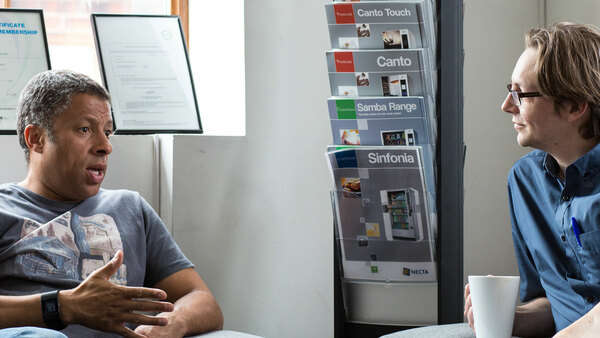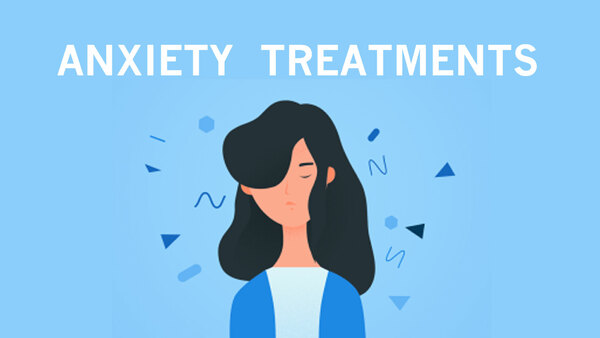
What to do when CBT doesn't work
Cognitive behavioural therapy (CBT) is go to therapy when you have anxiety. It is the often the first idea your doctor will suggest. There is a reason for this: it remains the most effective treatment we have1.
However, even with CBT, we only see a success rate of around 80%2. For a significant percentage of people, CBT does not produce the desired result. If you find yourself in this situation, what do you do next?
Here are six suggestions.
Counselling
Counselling refers to a range of different therapies. However, they all share a base of being talking-based. Studies show it can be highly effective3.
The disadvantage of counselling is that it is hard to know how long it will take4. It could take eight weeks, or it could take a year. Currently, we have limited evidence as to how much time is required. This is difficult if you are funding it yourself.
CBT, again
When you did your first round of CBT, did you do all of the homework? Like, did you really do it? I ask that not to be mean, but because the first time I did CBT I did not complete all of the homework. I was new to it and did not understand that was an essential part of the therapy.
I wrote about this in a previous blog post (see Why CBT doesn't work - and what to do about it). If you are not familiar with CBT when you start the programme, you may not have gained the best results from it.
Additionally, you may not have clicked with your therapist. This does not mean that you will not have a better relationship with another.
Acceptance
The idea of accepting our anxiety may sound like giving up to some. However, there is a difference between giving up, and accepting that you will always be anxious, but could still lead the life you want to live. In fact, there is a therapy for it. It is called Acceptance & Commitment Therapy (ACT).
ACT is new, but there are some useful books out there for it. Try The Mindfulness and Acceptance Workbook for Anxiety by John Forsyth and Georg Eifert5.
You can find that talking to others is helpful. If so, consider joining a local support group such as the one run by my charity, Anxiety Leeds.
Mindfulness
Mindfulness is all about living in the moment. As Paul Dolan points out in Happiness By Design6, our happiness is determined by what we pay attention to. Mindfulness teaches us to steer our minds away from our anxious thoughts and towards experiencing the present moment.
The evidence for the efficacy of Mindful Based Therapy continues to mount. A meta-analysis by Boston University look at 39 studies and concluded mindfulness was effective in reducing the symptoms of anxiety and depression7.
Medication
You probably don't want to try drugs, right? Or maybe you have tried them and found that they did not work for you either.
Antidepressants do come with some unpleasant side-effects. However, they can produce remarkable benefits, also. That would be worth having, no? It is a trade-off of pros and cons.
The trick with antidepressants is to find the right combination. We do not know exactly how SSRIs work. Therefore, it can take some time to find the right drug and the right dosage for each person.
Lifestyle
Anxiety can often be exacerbated by lifestyle factors such as poor diet and lack of exercise. Exercise improves our mood8 and increases our ability to handle stress9. Nutrition is now recognised as one of the core determinants of both physical and mental health10.
Solving these issues is tough: it takes a commitment to a lifetime of looking after yourself. However, the rewards are worth it.
In my new book, I will be looking at how to use exercise, diet, sleep, relaxation and relationships to manage anxiety.
Summary
If CBT has been unsuccessful for you, it can feel like there is nothing you can do. This is not the case: there are many other avenues open to you, as I have discussed in this article.
Everyone's psychological make-up is different. Therefore, it can take time to find the right treatment for each person. Do not give up hope if the first few directions you explore are unsuccessful.
Related articles
Metadata
Published 20 February 2017. Written by Chris Worfolk.
References
-
Hofmann SG, Asnaani A, Vonk IJJ, Sawyer AT, Fang A. The Efficacy of Cognitive Behavioral Therapy: A Review of Meta-analyses. Cognitive therapy and research. 2012;36(5):427-440. doi:10.1007/s10608-012-9476-1. ↩︎
-
Van Ballegooijen W, Cuijpers P, van Straten A, et al. Adherence to Internet-Based and Face-to-Face Cognitive Behavioural Therapy for Depression: A Meta-Analysis. García AV, ed. PLoS ONE. 2014;9(7):e100674. doi:10.1371/journal.pone.0100674. ↩︎
-
P. BOWER, N. ROWLAND and R. HARDY. The clinical effectiveness of counselling in primary care: a systematic review and meta-analysis. Psychological Medicine. Volume 33, Issue 2 February 2003, pp. 203-215. DOI: https://doi.org/10.1017/S0033291702006979 ↩︎
-
Shapiro DA, Barkham M, Rees A, Hardy GE, Reynolds S, Startup M. Effects of treatment duration and severity of depression on the effectiveness of cognitive-behavioral and psychodynamic-interpersonal psychotherapy. J Consult Clin Psychol. 1994 Jun;62(3):522-34. ↩︎
-
John P. Forsyth PhD, Georg H. Eifert PhD. The Mindfulness and Acceptance Workbook for Anxiety. ISBN: 9781626253346 ↩︎
-
Paul Dolan. Happiness by Design: Change What You Do, Not How You Think. ISBN: 0141977531 ↩︎
-
Hofmann SG, Sawyer AT, Witt AA, Oh D. The Effect of Mindfulness-Based Therapy on Anxiety and Depression: A Meta-Analytic Review. Journal of consulting and clinical psychology. 2010;78(2):169-183. doi:10.1037/a0018555. ↩︎
-
Lane AM1, Lovejoy DJ. The effects of exercise on mood changes: the moderating effect of depressed mood. J Sports Med Phys Fitness. 2001 Dec;41(4):539-45. ↩︎
-
Wikipedia, Neurobiological effects of physical exercise". 28 October 2016. https://en.wikipedia.org/wiki/Neurobiological_effects_of_physical_exercise ↩︎
-
Sarris, Jerome et al. Nutritional medicine as mainstream in psychiatry. The Lancet Psychiatry, Volume 2, Issue 3, 271-274 ↩︎

